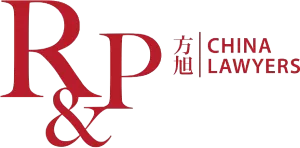- with readers working within the Retail & Leisure industries
- within International Law, Privacy and Tax topic(s)
China's is already the world's second-largest cosmetics market, but international players in particular are optimistic that it will grow further. According to figures from China's Ministry of Commerce, the value of imported cosmetics over 2020 grew a whopping 30%, which underscores the continued demand for international products in this category.
At the same time, domestic penetration remains a challenge for many international brands, at least in part due to legal reasons. The complex regulatory framework for filing of new ingredients has slowed the introduction of new products, while China's rules on mandatory animal testing continue to discourage many international companies from committing to the Chinese market.
The PRC Regulations for Cosmetics Supervision and Administration (CSAR) that took effect on 1 January 2021 are an important step towards the establishment of a comprehensive and more efficient legal framework to manage the sales and use of cosmetics products in China. While they do not touch upon the issue of animal testing, they do remove red-tape and introduce very clear compliance rules for efficacy claims.
1. Reducing Special-Use Categories
The regulations confirm the split between "general-use" and "special-use" cosmetics, and reduce the number of categories marked special-use: namely hair dyes, hair perming products, skin whitening products, sunscreens, anti-hair loss products, and other cosmetics that claim new function or new efficacy and are subject to registration. All other products are regarded general cosmetics.
2. Simplifying Ingredients Approval System
The previous system for approval of ingredients has been simplified for low-risk ingredients. This means that new ingredients in general cosmetics no longer require prior approval, but instead are subject to a simple filing with the National Medical Products Administration (NMPA). Only new ingredients for special-use cosmetics such as antiseptic, sunscreen, colorant, hair dye, and freckle whitening need to be approved, then registered by the NMPA pre-use,
3. Labeling Requirements and Efficacy Claims
Under the new regulations, cosmetics labels (which must be in Chinese) are prohibited from explicitly or implicitly suggesting that products have a medical function, and they must not contain false or misleading information that could reasonably deceive a consumer. More generally, any efficacy claims for products must be supported with evidence derived from literature, efficacy testing or research data that shall be made publicly available on the NMPA's website for all to review.
4. Responsibility for Quality, Safety and Efficacy Claims
Filing companies are responsible for the quality, safety and efficacy claims of cosmetics. Overseas cosmetics companies shall designate a legal person in China (must be a company) to handle the filings or registration, the local agent shall also be in charge of safety and quality. All filing and registration applications must include a safety assessment, completed by a professional qualified in the cosmetics field with no less than 5 years of appropriate work experience.
Animal testing
The biggest challenge for many international cosmetics brands is China's continuing insistence that all cosmetics (including both general-use and special-use) imported from abroad and sold in China are subject to both mandatory pre-market animal testing, as well as post-market animal testing in case of customer complaints or product recalls. (The only exception thus far: the sale of cosmetics through cross-border e-commerce.)
The CSAR does not deal with the topic, but still there is an important development: The Specifications on New Raw Material of Cosmetics Registration and Record-filing Materials (Draft for Comments) (released on 4 November 2020) issued to support the new regulations proposes an exemption to pre-market animal testing of certain imported general-use cosmetics if the manufacturer can offer:
- A certification issued by the authorities in the country of origin regarding a quality management system for cosmetics production; and
- Product safety evaluation results that can sufficiently prove the product's safety.
It is important to understand that the Specifications were not formally adopted. They also focus only on pre-market animal testing, i.e. they do not consider the secondary concern of animal testing requirements in case of customer complaints or product recalls. Nonetheless, the Specifications are a clear sign that China is relaxing its principled stance on the issue, and there are already reports of trial programs (e.g. https://www.businessoffashion.com/news/beauty/french-beauty-brands-can-now-export-to-china-without-testing-on-animals).
Conclusions
The CSAR, the Specifications, and other recent legislative initiatives (including the Measures for the Administration of Cosmetics Registration and Record-Filing Materials, effective 1 May 2021) clearly indicate that China is trying to streamline its regulatory framework for the cosmetics industry. These trends favor international cosmetics brands that wish to expand to or in China.
While the requirements on animal testing will remain a hurdle for the more principled rands, even for them there seems to be light at the end of the tunnel!
R&P China Lawyers is a full-service law firm that supports international businesses in China. The firm's retail & consumer goods practice supports many international brands that sell to the Chinese market, assisting them on mark entry, compliance and regulatory matters, as well as employment, commercial and IP support. For more about our practice, please email Mr. Maarten Roos at roos@rplawyers.com ), or your usual contact at R&P China Lawyers.


